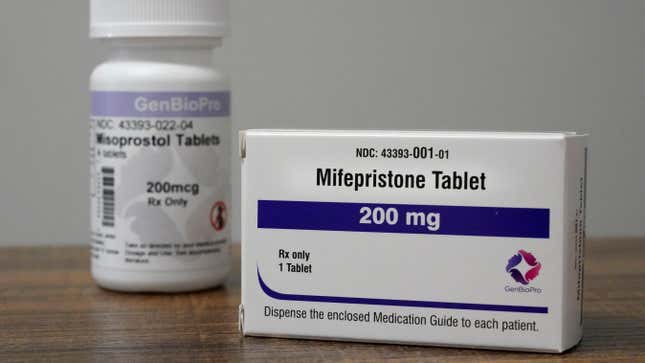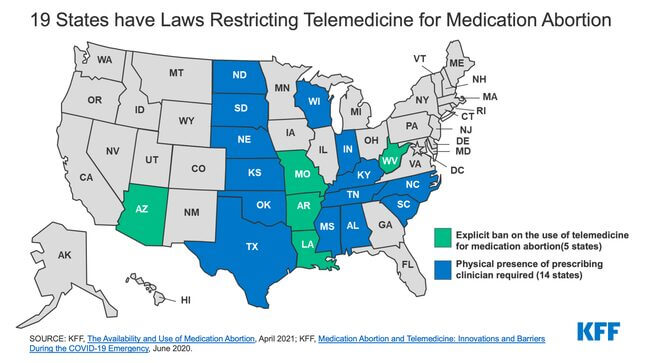Abortion Pills Now Allowed by Mail Permanently (for People in Blue States)
The FDA said people can get mifepristone by mail, but this only changes things in states that aren't hostile to abortion.
AbortionPolitics

Today, the Food and Drug Administration said that it would lift the in-person dispensing requirement for abortion pills, which opens the door for the pills to be available at pharmacies and would permanently allow people to receive them by mail, as has been permitted during the pandemic. The change has been a long time coming, but, because this is the United States, the impacts will be unequal. And notably, this will not solve the abortion crisis in red states like Texas.
The FDA approved mifepristone, a drug that stops a pregnancy from progressing, in September 2000. Up to 48 hours later, people take misoprostol, which causes uterine contractions, and the combination of drugs essentially induce a miscarriage. The regimen is FDA-approved for abortions through 10 weeks of pregnancy, as well as to treat incomplete miscarriages. But because of longstanding FDA rules, people seeking abortions previously had to get the pills in a doctor’s office, hospital, or abortion clinic, not at their local pharmacy or by mail.
Mifepristone is the only medication of about 20,000 FDA-approved drugs that people need to pick up in person but they can take anywhere they want, per the American Civil Liberties Union. The ACLU sued the FDA in 2017 over the policy and sued again, on behalf of a different group, during the pandemic. In April 2021, the Biden administration said healthcare providers could mail abortion pills for the duration of the pandemic health emergency, and US-based telemedicine sites like Abortion on Demand launched in response. (International sites serving the US have been operating in a legally murky fashion for years.)
-

-

-

-

-

-

-

-

-

-

-

-

-

-

-

-

-

-

-

-

-

-

-

-

-

-

-

-

-

-

-

-

-

-

-

-

-

-

-

-









































